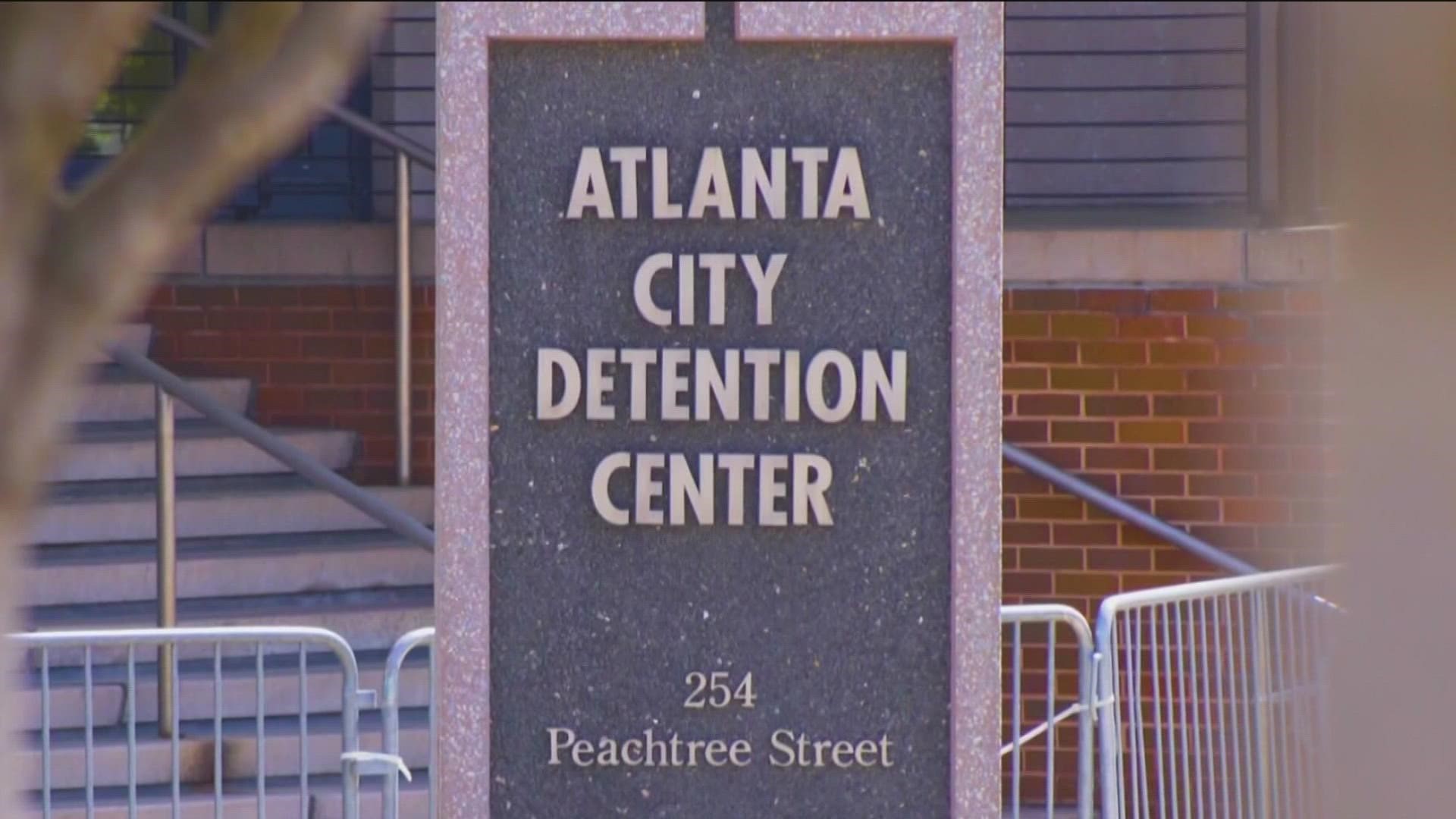ATLANTA — The City of Atlanta has finalized an agreement to house Fulton County Jail inmates at the old Atlanta City Detention Center, the mayor's office said Monday.
The agreement was approved by the Atlanta City Council in August. The city council at that time said the parameters of the agreement included Atlanta receiving $50 a day per inmate from Fulton County, for the detainee population not to exceed 700 and for the agreement to last for a term of four years with no option to renew.
In a statement, a spokesperson for the mayor's office said: “Per the ordinance passed by the Atlanta City Council, the City of Atlanta will proceed with entering into an intergovernmental agreement with Fulton County on the use of the Atlanta City Detention Center.”
It has long been a progressive goal in the city to close the detention center entirely - the city has taken steps toward doing so, including in September approving a $3 million plan to convert the bottom two floors of the facility into a diversion services center.
But the city has agreed to the deal with Fulton County to ease overcrowding at Fulton County Jail, where the Atlanta Police Department sends most people it arrests who get charged with more serious crimes. The Fulton County Jail is located on Atlanta's Westside, on Rice Street.
When the plan agreement was before the city council for approval three months ago, Mayor Dickens said the plan was to end all detention at the facility after four years and fully convert it into a diversion and other social services center.
“In four years, once we cut off this process of having inmates in ACDC (Atlanta Community Detention Center), then we turn ourselves into what the next future is, which is not with us being in the jailing business,” he said.
City Council President Doug Shipman told 11Alive's Joe Ripley in September that design plans for the conversion of the bottom two floors for diversion services would be making their way to the council and the mayor's office "in a few months," with construction targeted to begin next year.
The plan is modeled after a mental health jail diversion program in the Houston, Texas area, Shipman said.
"It’s a place other than a hospital or jail to take folks in need of mental health service, substance abuse services, facing homelessness, really a place for them to go," the city council president said.

